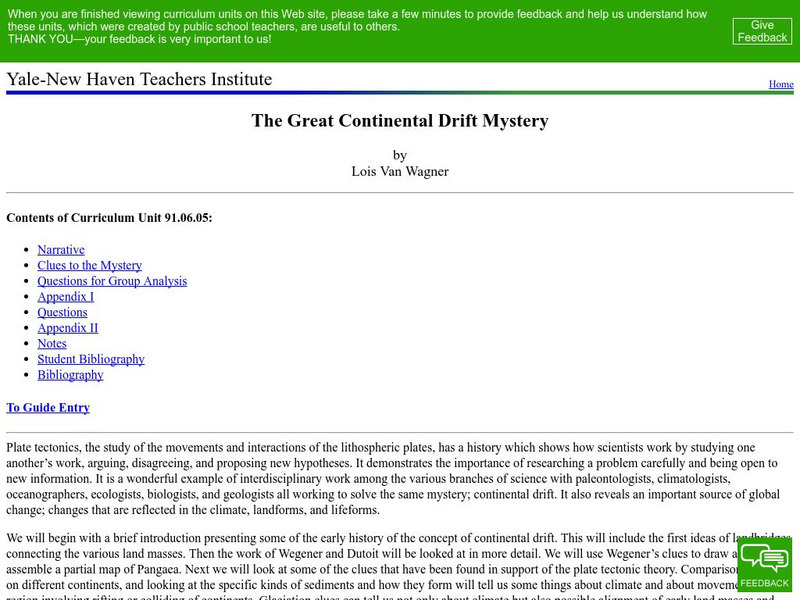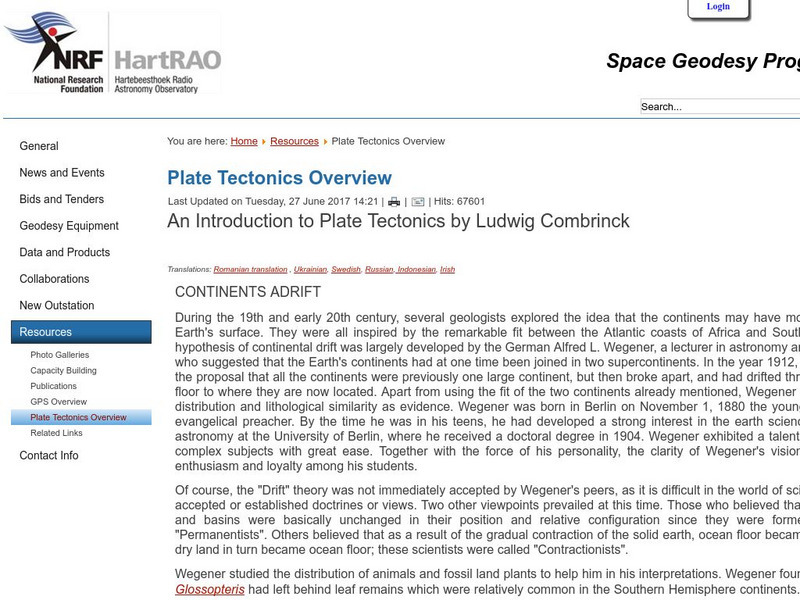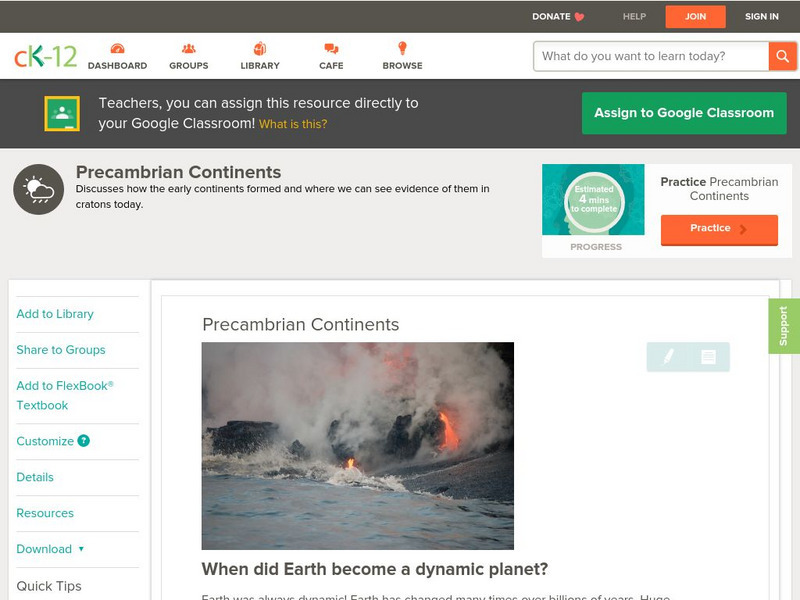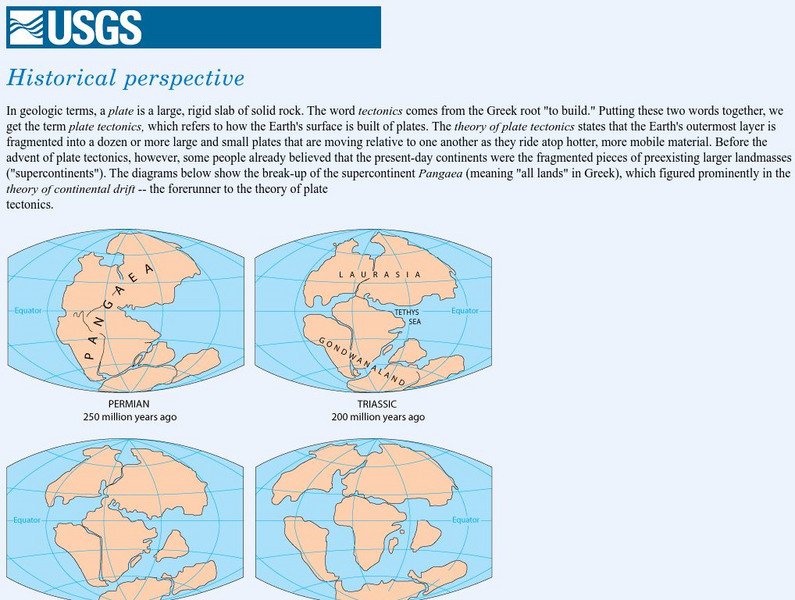Curated OER
Get the Drift?
The anticipatory set is clever: give groups five minutes to work on the puzzle and then discuss what strategies they used to match the few that connected. This introduces middle schoolers to the concept of continental drift. A portion of...
Yale University
Yale New Haven Teachers Institute: The Great Continental Drift Mystery
A unit on plate tectonics designed for middle school students, this page must be read carefully to find the activities to be done in the class, but it provides a wealth of background for the teacher as well.
Other
Hartao: An Introduction to Plate Tectonics
Introduces South African Alexander Toit as naming Gondwanaland and Laurasia.
Wikimedia
Wikipedia: Continental Drift
A brief Wikipedia encyclopedia article on continental drift. It tells what continental drift is, what causes it, and gives examples of evidence that continental drift has occurred.
TED Talks
Ted: Ted Ed: The Pangaea Pop Up
Michael Molina discusses the catalysts and consequences of continental drift. [4:25]
PBS
Continents on the Move
Scientists believe that all the continents were once combined in one supercontinent. That means that the continents must be moving. Find out how scientists can measure the movement of whole continents!
PBS
Garden of Eden: Seychelles
This interactive site on Seychelles discusses species diversity and much more! Learn all about how an island forms, how supercontinents divide, and why this atoll boasts both giant and miniature forms of species.
CK-12 Foundation
Ck 12: Earth Science: Precambrian Continents
[Free Registration/Login may be required to access all resource tools.] How the first continents were formed.
Annenberg Foundation
Annenberg Learner: Earth and Space Science: Every Rock Tells a Story
Explore the different types of rocks on our Earth as you watch a one-hour video, accompanied by learning goals, details on sedimentary rocks, fossils, and supercontinents, and more.
University of Illinois
University of Illinois Urbana Champaign: About Antarctica: Plate Tectonics
Explanation of why Antarctica has fossils of ferns, amphibians, and reptiles. Gondwanaland is discussed and shown in an interactive map.
TED Talks
Ted: Ted Ed: How North America Got Its Shape
Peter J. Haproff explains how it took millions of years and some incredible plate tectonics to forge the continent we know today. [4:57]
US Geological Survey
Usgs: Historical Perspective
A graphic map of Lauraisia is provided at this site on continental drift and the history of the Earth. You can also search text to find reference to Laurasia.













